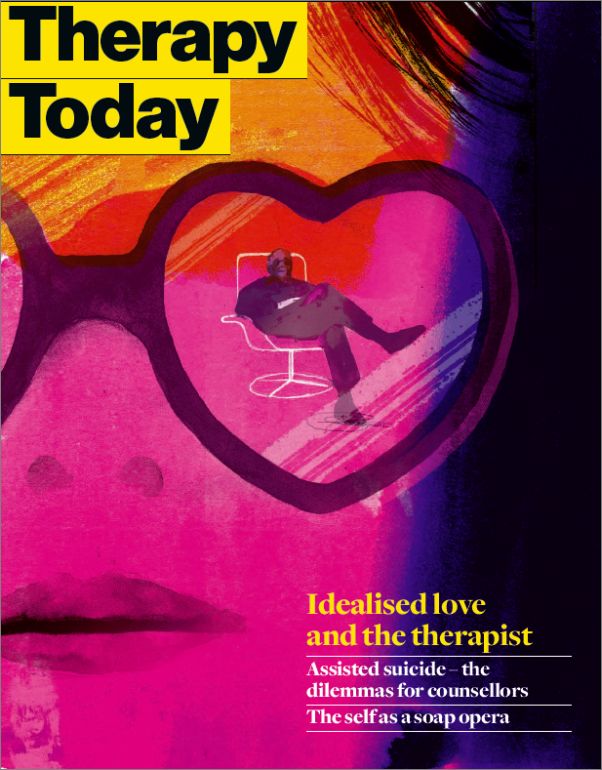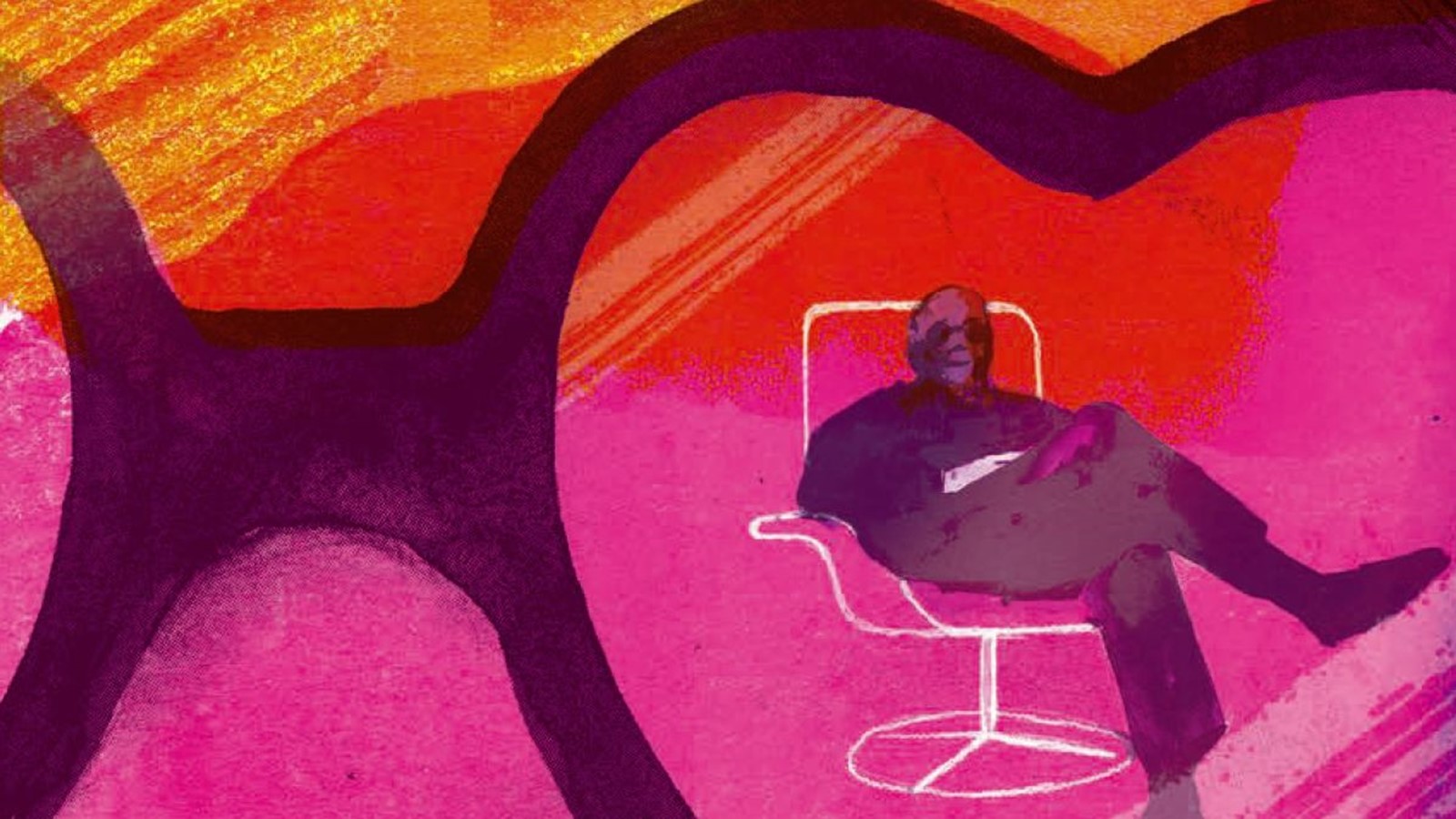In this issue
Features
Transference love and harm (free article)
Dawn Devereux explores the phenomenon of adverse idealising transference.
Connoisseurs of counselling
Phil Hills calls on the counselling professions to stand up for their efficacy and values.
Attachment theory and post-cult recovery
Alexandra Stein and Mary Russell describe the impact of growing up in a cult.
Relational ethics and Ethical Framework
Els van Ooijen explains how a relational approach can help untangle ethical dilemmas.
All the world’s a soap
Geraldine Marsh delves into issues of identity and self and what makes us who we are.
Regulars

A pdf version of this issue is available in the Therapy Today archive
Editorial
This month’s issue is the first to be produced under the aegis of our new publisher, Think.
Think has a very strong reputation as a specialist publisher of membership journals, with several award-winning publications to its name. From this issue, it has overall responsibility for the editorial, design, production, print and distribution of ; the advertising remains with BACP. You’ll not notice any great changes for the next four issues but BACP is already working intensively with Think on a complete redesign and relaunch for February 2017
Rest assured, we won’t be changing what you tell us you love about Therapy Today – its professionalism, its evidence-based and accessible articles, its relevance to frontline practice and practitioners across all sectors and client groups. But we will be freshening it up with new content and different presentations.
This month the cover article is about the troubling issue of adverse idealising transference (AIT) – when clients fall in love with an idealised image of their therapist. The author, Dawn Devereux, draws on data from the Clinic for Boundaries Studies (CfBS) helpline casebook. The CfBS emerged from Witness, formerly POPAN, which used to be the only source of support for clients who believed they had been abused, physically, sexually or emotionally, by their therapist. Their campaigns, together with some high-profile court cases, helped bring about the tighter regulation of the counselling and psychotherapy professions, and BACP’s own Register.
Sadly, CfBS has recently suspended its helpline, hopefully only temporarily. Along with BACP’s ‘Ask Kathleen’ service, it has been a vital source of independent support and information for clients of counsellors and psychotherapists, and particularly those in the private sector, without recourse to the NHS complaints systems. The article’s description of how clients have become caught in the web of AIT, more often through their therapists’ lack of skill or naivety, rather than evil intent, reminds us why they may need a guide to help them distinguish between a difficult experience in therapy and deliberate or accidental abuse.
Catherine Jackson
Editor
